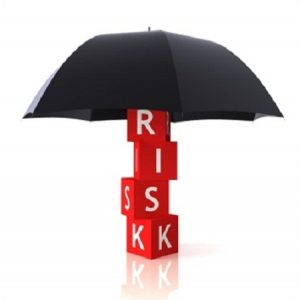 Your commercial insurance policies protect your business, making your insurance agent an essential resource for your company. While you may not have your agent on speed dial, you will want to contact him or her in several circumstances.
Your commercial insurance policies protect your business, making your insurance agent an essential resource for your company. While you may not have your agent on speed dial, you will want to contact him or her in several circumstances.
Verify Coverage Details
You can purchase a variety of different policies for your business, and need to understand your exact coverage. Contact your insurance agent to verify which types of coverage you have and your policy limits.
Update Your Policy
When you add a vehicle to your commercial fleet, sell a piece of equipment, move to a new location, or make other changes to your business operations, call your insurance agent. These updates could affect your insurance needs, policy and premium.
File A Claim
If you need to file an insurance claim, contact your agent immediately. You may call the agent’s office, send an email or text, or fill out an online claim form on the company’s website. Remember to submit pictures, too, as you get your claim process started.
Ask Questions About a Claim
After you file an insurance claim, you may have questions about the adjuster’s findings or the settlement timeline. Feel free to contact your agent and ask any questions you may have.
Discuss Your Bill
Whether you pay your insurance bill annually, semi-annually or quarterly, you may inspect your bill and realize that you have questions about one of the charges or fees. Most insurance agents remain transparent about billing, and they can explain anything you don’t understand about your insurance charges, fees or payment date.
Pay Your Bill
If you experience any issues when you pay your insurance bill, call your agent. You may also ask for a change in the policy due date or a change in payment frequency.
Initiate an Annual Review
You should receive a notice a few weeks before your commercial insurance policy’s renewal date. Ask your agent for a meeting to renew your coverage. During this meeting, discuss details about your business and the types of insurance you need, including coverage limits and cost, as you verify that you have the right insurance for your needs.
Request a New Quote
Based on your insurance policies you purchase and your loyalty to your commercial insurance company, you may qualify for discounts or a more competitive rate. Your agent can rework your coverage limits, check for discounts and give you a new quote that meets your budget.
Throughout the year, you may wish to contact your commercial insurance agent for several reasons. Always feel free to reach out and discuss your needs as you purchase the right coverage for your business.




 To help you make sure make sure that your business has the right Commercial Auto policy at the right price, we’d recommend following these guidelines:
To help you make sure make sure that your business has the right Commercial Auto policy at the right price, we’d recommend following these guidelines: Insurance protects your small business from a variety of liabilities and losses. While you already pay for commercial liability, auto and property insurance, learn how umbrella insurance can help your business, too.
Insurance protects your small business from a variety of liabilities and losses. While you already pay for commercial liability, auto and property insurance, learn how umbrella insurance can help your business, too. Do you have the information you need to make an informed decision on buying Business Interruption (BI) insurance? Unfortunately, some companies only discover that they don’t have enough BI coverage to stay in business after they suffer a major loss. On the other hand, other firms over-insure, shelling out excessive premiums for protection they might not need.
Do you have the information you need to make an informed decision on buying Business Interruption (BI) insurance? Unfortunately, some companies only discover that they don’t have enough BI coverage to stay in business after they suffer a major loss. On the other hand, other firms over-insure, shelling out excessive premiums for protection they might not need. Your small business tax returns may not be due until April, but now’s the time to start your tax prep so you’re ready for the big day. As you gather documents and compile receipts, consider the commercial insurance premiums you can deduct as business expenses.
Your small business tax returns may not be due until April, but now’s the time to start your tax prep so you’re ready for the big day. As you gather documents and compile receipts, consider the commercial insurance premiums you can deduct as business expenses. Your business performs a year-end financial analysis, but when was the last time you updated your insurance policies? Insurance protects your company from liability, natural disasters and cyber threats. Make an appointment now to check, change or update your coverage as you prepare for a successful new year.
Your business performs a year-end financial analysis, but when was the last time you updated your insurance policies? Insurance protects your company from liability, natural disasters and cyber threats. Make an appointment now to check, change or update your coverage as you prepare for a successful new year. Jillian owns a small office supply store, and she sometimes asks her employees to make customer deliveries in their personal vehicles. She wonders if she needs to purchase a commercial auto insurance policy to cover any accidents or other related claims. Two questions help Jillian address this risk and determine what type of insurance is best for her needs, and they can help you, too, if you’re in a similar situation.
Jillian owns a small office supply store, and she sometimes asks her employees to make customer deliveries in their personal vehicles. She wonders if she needs to purchase a commercial auto insurance policy to cover any accidents or other related claims. Two questions help Jillian address this risk and determine what type of insurance is best for her needs, and they can help you, too, if you’re in a similar situation.



